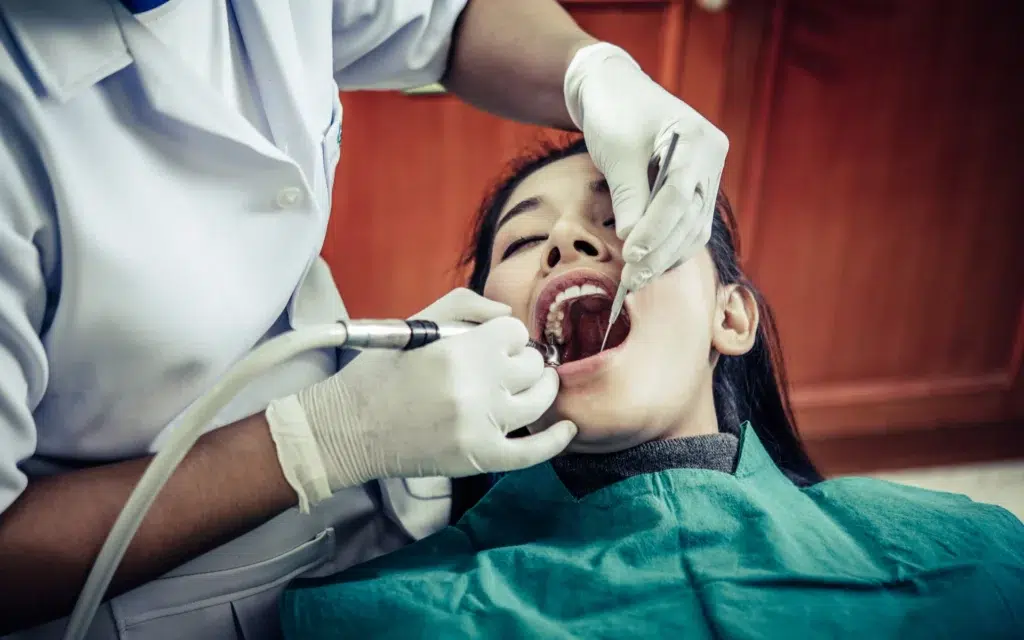Periodontal disease, commonly known as gum disease, is a sneaky little devil. It creeps up on you unnoticed, and before you know it, you’re dealing with inflamed gums, bad breath, and if left untreated, possible tooth loss. But, don’t panic just yet! Fortunately, there are non-surgical periodontal treatments available that can help get your oral health back on track.
These treatments are less invasive, less painful, and require less recovery time than their surgical counterparts. Sounds great, right? But, hold your horses; choosing the right treatment option is not as simple as picking out your favourite toothpaste. It’s crucial to understand the different options available and their respective benefits.
From scaling and root planing to local antimicrobials, there’s a broad spectrum of non-surgical periodontal treatments to explore.
Scaling and Root Planing: A Cornerstone of Non-Surgical Periodontal Treatment
The first step in addressing periodontal disease is the removal of plaque and tartar deposits that harbor harmful bacteria. Scaling and root planing, also known as a deep cleaning, is a non-surgical periodontal treatment that eliminates these deposits from both above and below the gum line. The procedure involves:
- Scaling: Using specialized instruments, the dental professional gently removes plaque and tartar buildup from the tooth surface and the periodontal pocket, where the gum attaches to the tooth.
- Root Planing: The practitioner meticulously smooths the surface of the tooth root to deter future bacterial buildup and enable the gum tissue to reattach to the tooth, reducing pocket depths.
Scaling and root planing offer several benefits, including preventing further gum disease progression, reducing inflammation, improving bad breath and, in many cases, eliminating the need for more invasive surgical procedures.
Local and Systemic Antibiotics: Complementary Treatments for Gum Disease
Antibiotics play a crucial role in the management of periodontal disease, targeting bacteria that contribute to gum inflammation and tissue damage. Non-surgical periodontal treatments often incorporate local or systemic antibiotics to further promote healing and prevent reinfection. These therapies offer various benefits, such as:
- Local Antibiotics: Delivered directly to the periodontal pocket, local antibiotics can target specific problem areas without impacting the rest of the body. Medications like Arestin and PerioChip are commonly used and can effectively treat localized infections and supplement the effects of scaling and root planing.
- Systemic Antibiotics: These medications are taken orally and treat periodontal infections throughout the entire mouth. They are especially useful in cases where multiple teeth are affected or where the patient is at a high risk of developing complications due to gum disease. Common systemic antibiotics used for periodontal treatment include doxycycline, tetracycline, and metronidazole.
When used correctly, both local and systemic antibiotics can bolster non-surgical periodontal treatments, offering faster healing, reduced inflammation, and better long-term outcomes.
Periodontal Maintenance: Continuous Oral Care for Lasting Results
Optimal oral health requires ongoing maintenance to prevent the recurrence of gum disease and preserve the results achieved through initial non-surgical periodontal treatment. Periodontal maintenance appointments are specifically tailored to your oral health needs, typically scheduled every three to four months, and may involve:
- Professional Cleanings: Regularly scheduled dental cleanings effectively remove plaque and tartar deposits, preventing the progression of gum disease and minimizing the risk of future dental problems.
- Periodontal Exams: These assessments enable dental professionals to detect and address any early signs of gum disease recurrence, ensuring timely intervention and maintaining oral health.
Periodontal maintenance is vital to preserving the results of non-surgical periodontal treatments, as it promotes healthy gum tissue, reduces inflammation, and maintains optimal dental health.
At-Home Periodontal Care: Empowering Patients to Protect Their Oral Health
In addition to professional non-surgical periodontal treatments, daily at-home oral care plays a critical role in maintaining gum health and preventing the progression of gum disease. A proper at-home periodontal care regimen should include:
- Brushing: Brush your teeth twice daily using a soft-bristled toothbrush and fluoride toothpaste to remove plaque and bacteria from tooth surfaces.
- Flossing: Floss at least once per day to dislodge plaque and food particles from between teeth and under the gum line.
- Mouthwash: Use antibacterial mouthwash to help kill bacteria and reduce plaque buildup on teeth and gums.
- Regular Dental Checkups: Visit your dental professional regularly for exams, cleanings, and tailored advice on your oral care routine.
Embrace Non-Surgical Periodontal Treatments for Improved Oral Health
In the end, the choice between surgical and non-surgical treatments will depend on the individual’s specific situation and the severity of their periodontal disease. However, it’s reassuring to know that there are non-invasive options available that can effectively manage this prevalent oral health issue. These treatments not only offer a less daunting alternative to surgery but also contribute significantly to the overall well-being and quality of life of the patients.
At Dallas Periodontics and Dental Implants, we are committed to offering our patients top-quality services tailored to their unique needs, ensuring a healthy and beautiful smile. Schedule a consultation with us today to learn more about your non-surgical periodontal treatment options and take the first step towards achieving excellent oral health.

